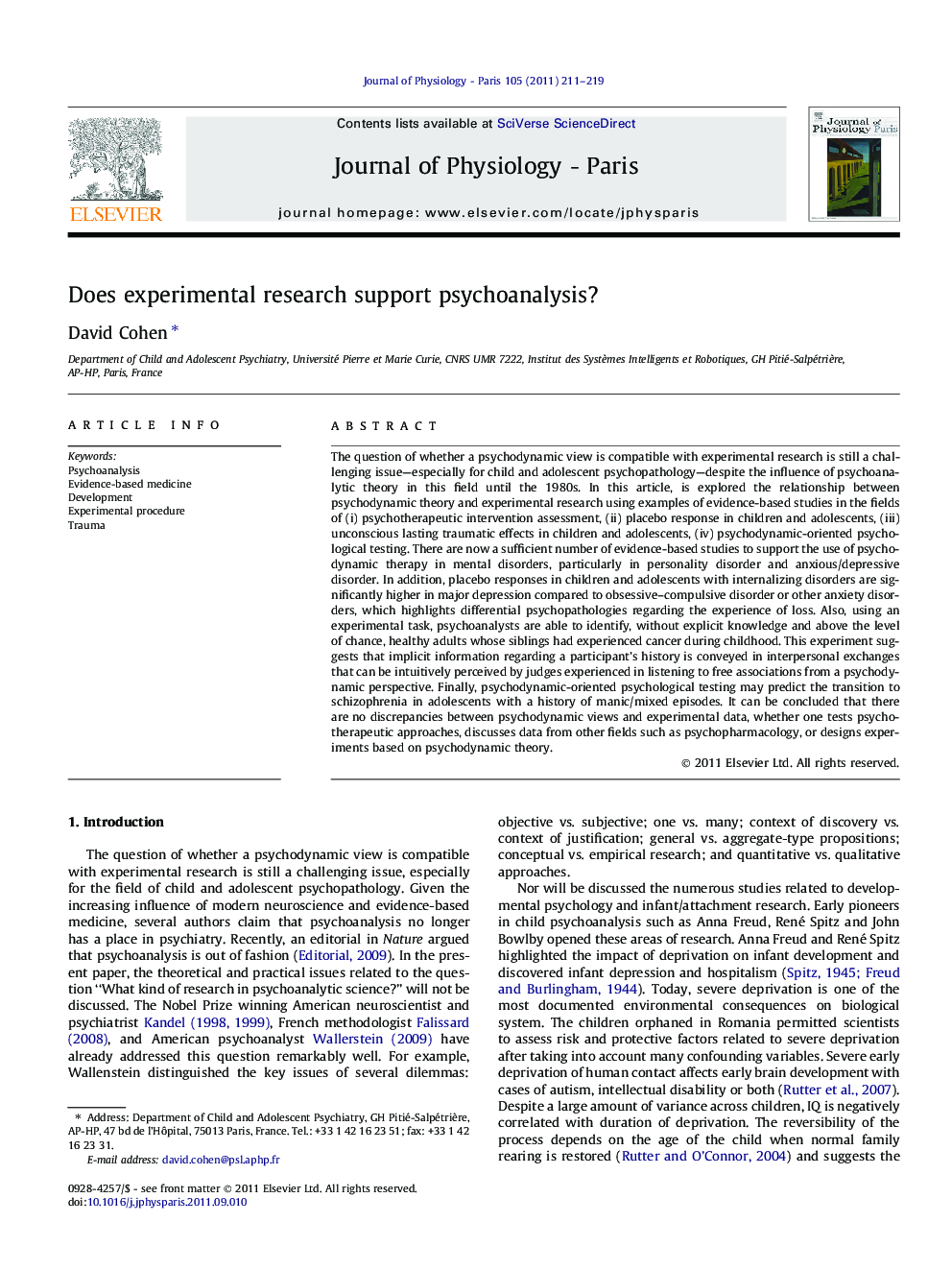| Article ID | Journal | Published Year | Pages | File Type |
|---|---|---|---|---|
| 2842409 | Journal of Physiology-Paris | 2011 | 9 Pages |
The question of whether a psychodynamic view is compatible with experimental research is still a challenging issue—especially for child and adolescent psychopathology—despite the influence of psychoanalytic theory in this field until the 1980s. In this article, is explored the relationship between psychodynamic theory and experimental research using examples of evidence-based studies in the fields of (i) psychotherapeutic intervention assessment, (ii) placebo response in children and adolescents, (iii) unconscious lasting traumatic effects in children and adolescents, (iv) psychodynamic-oriented psychological testing. There are now a sufficient number of evidence-based studies to support the use of psychodynamic therapy in mental disorders, particularly in personality disorder and anxious/depressive disorder. In addition, placebo responses in children and adolescents with internalizing disorders are significantly higher in major depression compared to obsessive–compulsive disorder or other anxiety disorders, which highlights differential psychopathologies regarding the experience of loss. Also, using an experimental task, psychoanalysts are able to identify, without explicit knowledge and above the level of chance, healthy adults whose siblings had experienced cancer during childhood. This experiment suggests that implicit information regarding a participant’s history is conveyed in interpersonal exchanges that can be intuitively perceived by judges experienced in listening to free associations from a psychodynamic perspective. Finally, psychodynamic-oriented psychological testing may predict the transition to schizophrenia in adolescents with a history of manic/mixed episodes. It can be concluded that there are no discrepancies between psychodynamic views and experimental data, whether one tests psychotherapeutic approaches, discusses data from other fields such as psychopharmacology, or designs experiments based on psychodynamic theory.
